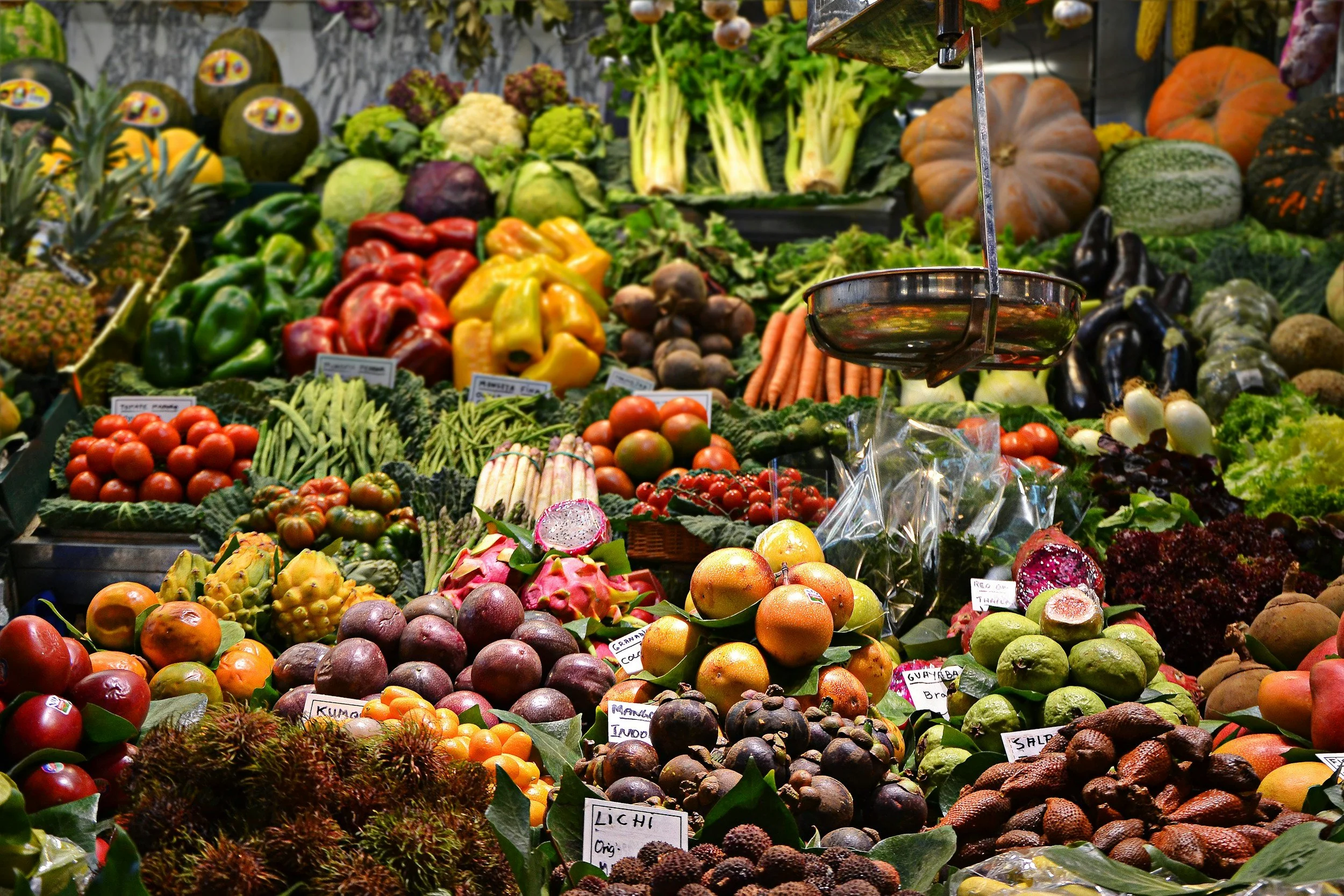30 Plants a Week: The Simple Habit That Transforms Skin and Gut Health
You’ve probably heard that eating more plants is good for you. But one of the most powerful nutrition habits for your gut, skin, and whole-body isn’t just eating more plants, it’s variety that matters.
Research shows that aiming for 30 different plant foods per week is one of the best ways to build a healthier gut microbiome, reduce inflammation, and support radiant skin. The best part? It’s not about cutting out your favourite foods it’s about adding colour, flavour, and diversity to your plate.
Why 30 Plants? The Research
This recommendation comes from the American Gut Project, the largest study of its kind looking at the human microbiome (the trillions of bacteria and microbes living in our digestive tract).
Findings showed that people who ate 30 or more different plant foods per week had:
Greater microbial diversity (a key marker of gut health)
Lower inflammation levels
Better resilience against infections and chronic illness
Why does this matter? Because your gut microbes don’t all thrive on the same food. Different fibres, polyphenols, and plant compounds feed different species. By increasing variety, you’re literally feeding more of the “good bugs” that keep you healthy.
The Gut–Skin Connection
Your gut and skin are in constant communication and often referred to as the gut-skin axis. Here’s how eating more plants plays a role:
Reduced Inflammation
A balanced microbiome produces short-chain fatty acids (SCFAs) like butyrate, which lower inflammation. Less inflammation = calmer skin, fewer flare-ups in conditions like acne, rosacea, or eczema.
Improved Detoxification & Hormone Clearance
Plant fibre helps eliminate toxins and excess hormones through the bowels. This prevents them from being reabsorbed and potentially contributing to breakouts or sluggish skin
Antioxidant Protection
Colourful fruits and vegetables are rich in antioxidants (like vitamin C, polyphenols, carotenoids). These protect skin cells from oxidative stress, slow signs of ageing, and support collagen production.
Other Benefits of Plant Foods
Eating 30 plants a week also supports:
Immune Health → 70% of your immune system lives in your gut. A diverse microbiome trains your immune cells, reducing allergies and autoimmune activity.
Mental Health → SCFAs and plant polyphenols influence neurotransmitter production, improving mood and reducing anxiety.
Metabolic Health → Plant diversity improves blood sugar balance and reduces the risk of obesity, type 2 diabetes, and cardiovascular disease.
Longevity → Studies link higher microbiome diversity with healthier ageing and lower risk of chronic disease.
How to Reach 30 Plants a Week
It might sound like a lot, but when you count fruits, vegetables, wholegrains, legumes, nuts, seeds, herbs, and spices, it’s surprisingly easy. Here are some practical tips:
Add herbs and spices generously — each one counts.
Rotate your nuts and seeds (almonds, cashews, walnuts, flax, chia, sunflower seeds).
Try new wholegrains like quinoa, buckwheat, barley, or wild rice.
Use different legumes — chickpeas, black beans, lentils, kidney beans.
Build a “rainbow plate”. The more colours, the more diverse your nutrients.
What a Plant-Powered Day Looks Like
Breakfast: Smoothie with spinach, banana, blueberries, oats, flaxseed, walnuts, cinnamon (7 plants)
Lunch: Quinoa salad with rocket, tomato, cucumber, chickpeas, parsley, pumpkin seeds, olive oil (8 plants)
Snack: Apple with almond butter (2 plants)
Dinner: Lentil curry with brown rice, sweet potato, kale, onion, garlic, ginger, turmeric, coriander (8+ plants)
One day, almost your whole week’s worth!
Eating 30 plants a week is a simple yet powerful shift that can transform your skin, gut, and overall health. By focusing on variety rather than restriction, you’re feeding a diverse microbiome, reducing inflammation, boosting your glow, and supporting long-term wellbeing.
Your gut loves variety. Your skin loves balance. And your body will thank you for it.

